Zum Inhalt springen
- {{#headlines}}
- {{title}} {{/headlines}}
Rolling in the Deep: Wonder Women Bridging the Knowledge Divide
Two women walk into a residency programme, armed with notebooks, research papers, and a mission to change the way we think about knowledge. Nope, this isn’t the plot of a Netflix series (although it should be) – this is the story of Annick Eimer and Sarah Iqbal, two fierce minds tackling global conversations on knowledge access and equity.
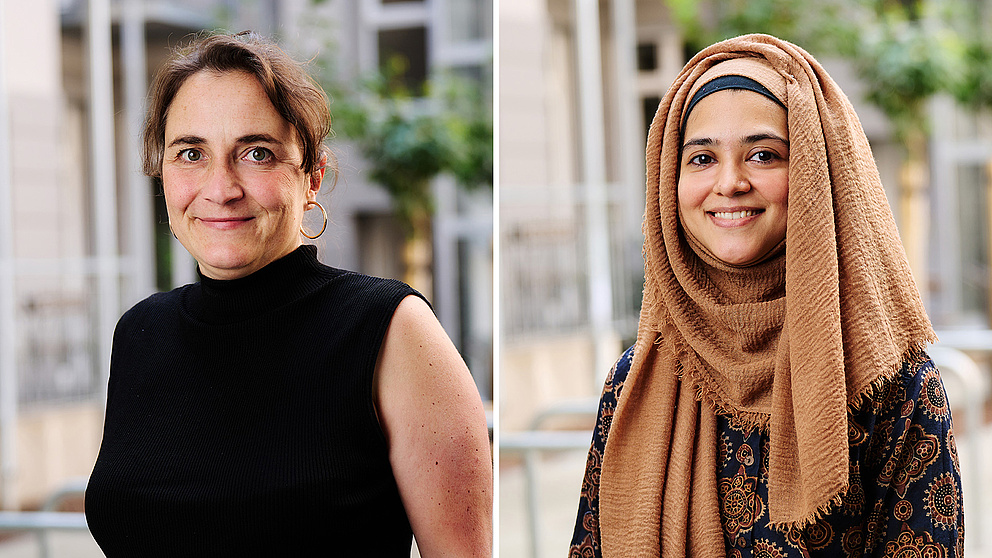
Dynamic Duo of Knowledge
If you had to cast these two in a superhero flick, Annick would be the "Knowledge Transfer Ninja." Her mission? To get policymakers to stop sitting around and create pathways for transferring knowledge from science to society, whilst also addressing the systemic barriers that keep non-Western knowledge out of the spotlight. Sarah would be the "Research Whisperer." Armed with her PhD in biochemistry and her role at the George Institute for Global Health in New Delhi, she magically turns dense, jargon-heavy scientific research into something you’d actually want to read about with your morning coffee, enabling researchers, particularly from the Global South, to amplify their findings.
Transforming Knowledge Landscapes
Annick’s and Sarah’s work is like peanut butter and jelly – different, sure, but so much better together. They’re tackling the Humboldt Residency Programme’s big questions about how to counter inequalities in access to knowledge and increase the visibility of different forms of knowledge. The Global North still controls most of the research funding, and Western-centric academic frameworks, rooted in colonial legacies and structural inequality, often overshadow Indigenous knowledge systems.
The Knowledge Revolution Begins
Let’s imagine a world where Annick’s and Sarah’s vision becomes reality. Policymakers would wake up to the need for real knowledge-sharing frameworks and would not just debate the next tax break but how to integrate Indigenous climate knowledge into mainstream policy. Research centres would flood communities with accessible, easy-to-understand information about healthcare and the environment.
So, next time you think about the big power imbalances in global knowledge systems, picture Annick and Sarah – truly shifting the landscape. Instead of just talking about diversifying access to knowledge, they’re building the pathways for it. And who knows? In a few years, we might be reading about them in textbooks – or binge-watching that Netflix docuseries.
Girls Just Wanna Have Climate Justice
Babita Paudel and Adenike Akinsemolu are not just making waves – they’re creating tsunamis in science, exploring pressing questions at the intersection of Indigenous rights, climate action, and women’s empowerment.
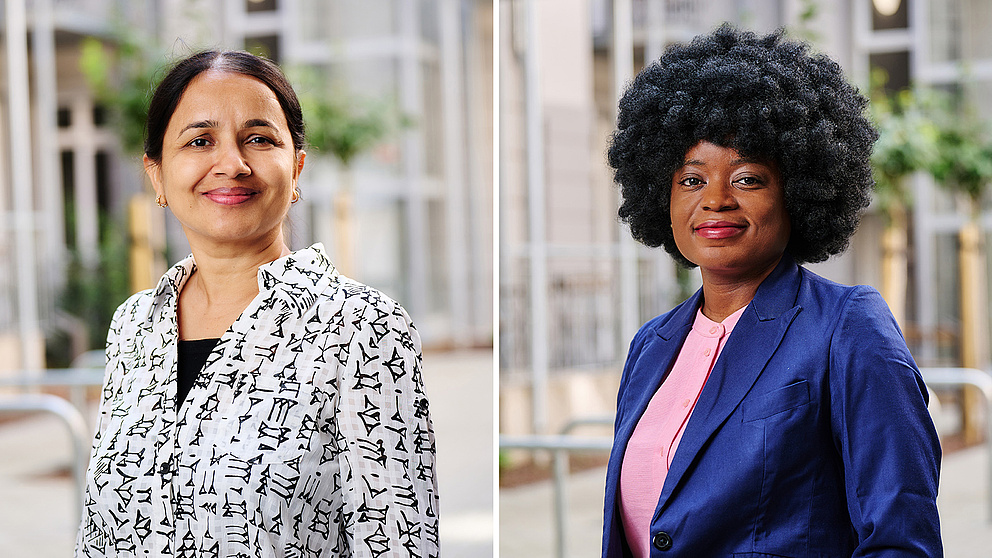
Babita Paudel: The Natural Chemist Turning the Tide on the Climate Crisis
Babita Paudel is Nepal’s own eco-superhero. As head of the Center for Natural and Applied Sciences in Kathmandu, she’s deeply involved in studying medicinal plants and microorganisms. Nepal’s rich biodiversity is under serious threat from climate change, along with the invaluable medicinal knowledge Babita is documenting and preserving. She uses rigorous scientific research to validate traditional practices, ensuring they’re respected and included in mainstream science.
But Babita isn’t just a scientist – she’s also a champion of Indigenous knowledge. Nepalese communities have lived sustainably with their environment for centuries, and her research integrates these practices into today’s climate strategies. She’s equally passionate about empowering girls and women in Nepal to break into STEM fields. By excelling in her own career and creating opportunities for young girls, Babita ensures they are not just observers of the climate crisis but will be equipped to be key players in solving it.
Adenike Akinsemolu: The Green Guru Championing Fair Sustainability
Adenike Akinsemolu is an environmental advocate with a knack for making green practices mainstream. As director of Nigeria’s Green Institute and an environmentalist, she’s seen firsthand how climate change and environmental degradation hit Global South communities hardest. Adenike focuses not just on finding solutions, but on ensuring they’re fair and inclusive, with local communities empowered and their knowledge valued.
Through her work with National Geographic, the United Nations Environment Programme, and the UN Sustainable Development Solutions Network, Adenike advocates for policies that are informed by traditional knowledge alongside modern scientific advancements.
A Sisterhood for Science, Sustainability, and Decolonisation
As Babita and Adenike continue their work at the Humboldt Residency Programme 2024, they’re not just answering tough questions – they’re rewriting the rules. These women prove that the fight for knowledge equity, climate action, and women’s empowerment is not just possible, but essential. Their efforts are paving the way for a future where traditional knowledge is respected, researchers from the Global South lead the charge, and the global scientific community becomes truly inclusive.
So, here’s to Babita and Adenike – may their work inspire us all to think differently, act boldly, and strive for a world where knowledge, in all its forms, is valued and shared.
We Don’t Talk Anymore: Breaking Colonial Silences
Picture this: a Filipino scientist, an Australian Jewish journalist, and a Nigerian cultural expert walk into a bar. Sounds like the start of a joke, right? But no, it’s the beginning of a revolution in how we think about power, knowledge, and the colonial silences that have left so many voices unheard. Meet Christer de Silva, Amie Liebowitz, and Shadrach Ukuma.
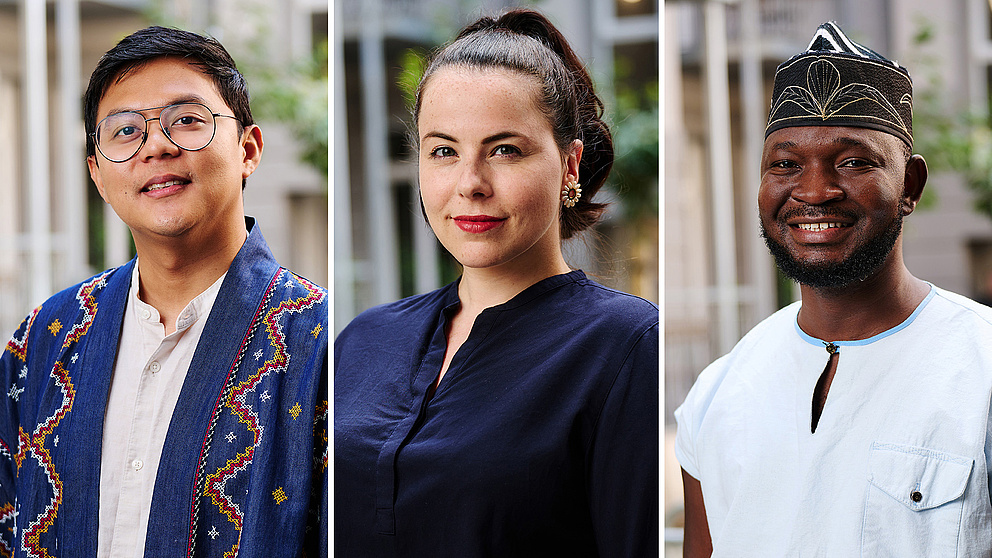
Christer de Silva: The Tony Stark of Epistemic Justice
Let’s start with Christer de Silva, who’s using his cutting-edge ideas to uncover how local and Indigenous knowledge can play a crucial role in biodiversity conservation and science communication. Imagine if Tony Stark weren’t just building high-tech suits but also ensuring local communities had a voice in the process. Christer’s work isn’t just about rediscovering lost wisdom; it’s about integrating it into contemporary science, so everyone gets a fair say.
Amie Liebowitz: The Hermione Granger of Media
Next, we have Amie Liebowitz, an Australian Jewish journalist, the Hermione Granger of media – smart, resourceful, and determined to uncover stories from the far reaches of the world, often overlooked. Her reporting isn’t just about the latest headlines; it’s about ensuring these crucial stories from the field reach a broader audience. While Christer integrates lost knowledge, Amie amplifies it, making sure these stories aren’t lost in the shuffle.
Shadrach Ukuma: The Black Panther of Cultural Performance
Then there’s Shadrach Ukuma, taking festivals and cultural events beyond being celebrations and turning them into powerful platforms for knowledge sharing and co-creation. With a dual PhD in Cultural Performance and Sustainability from Germany and Nigeria, he’s like a blend of T’Challa and the Avengers. Shadrach sensitises researchers and political actors from the Global North to the persisting colonial structures and to the value of local and Indigenous knowledge.
The Ultimate Team-Up: Avengers of Knowledge Sharing
Here’s where the magic happens: together, they’re redefining how knowledge is shared and valued globally. They’re flipping the script on who gets to be heard, ensuring colonial silences aren’t just broken but transformed into a new narrative where every voice and every piece of knowledge get their due. Imagine this trio as the ultimate team-up – like the Avengers of breaking down knowledge barriers.
So, back to our joke: a Filipino scientist, an Australian Jewish journalist, and a Nigerian cultural expert walk into a bar...and instead of just ordering drinks, they’re crafting a world where knowledge flows freely, voices are amplified, and everyone gets a seat at the table. Here’s to breaking colonial silences, one groundbreaking project at a time. Cheers to Christer, Amie, and Shadrach – our heroes in the quest for global knowledge justice!
The History Heroes: Confronting Knowledge Imbalances
Imagine this: Indiana Jones and Sherlock Holmes team up, not to uncover lost treasures or solve mysterious crimes, but to tackle questions about who gets to call the shots in our global knowledge system. That’s exactly what Matthew Fitzpatrick and Lkhamsuren Munkh-Erdene are doing, only with fewer whips and deerstalker hats.
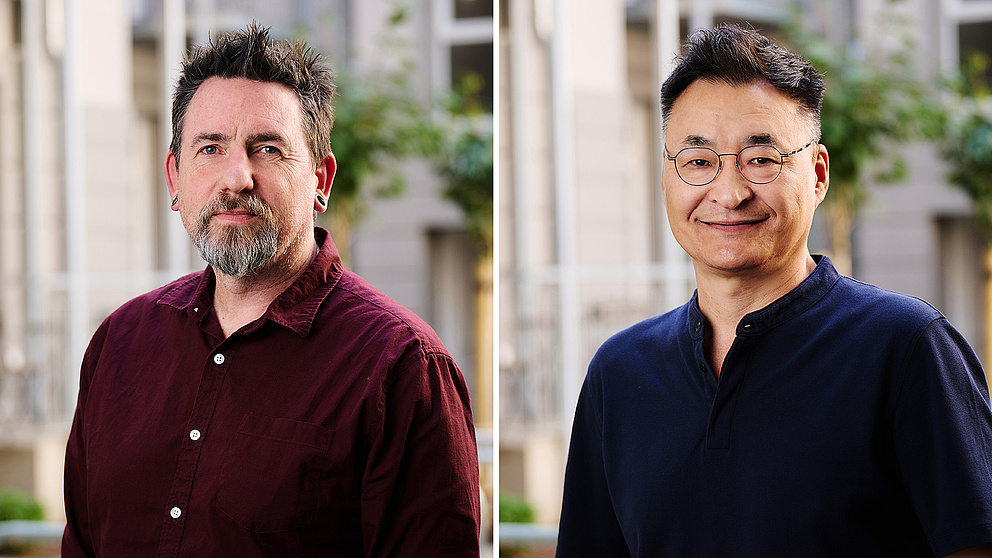
Matt Fitzpatrick: The Indiana Jones of Imperialism
Matt Fitzpatrick is a Professor of International History at Flinders University, and if he were cast in a film, he’d definitely be Indiana Jones. Instead of dodging boulders, he dives headfirst into German and European imperialism. His books, like The Kaiser and the Colonies and Purging the Empire, are historical blockbusters that explore how empires hoarded knowledge like Gollum with the One Ring. He understands how power and knowledge were (and still are) used to control narratives – and he’s here to explain how that plays out in our contemporary world.
Lkhamsuren Munkh-Erdene: The Gandalf of Mongolian Wisdom
Munkh is a Professor of History and Anthropology at the National University of Mongolia. If Matt is Indiana Jones, then Munkh is Gandalf, calmly sharing the wisdom missing from the global stage. An expert in state-building, collective identity, and the complexities of pre-modern Eurasia, Munkh weaves together historical narratives with modern realities – particularly how Mongolia’s indigenous knowledge systems were marginalised during colonialism and socialism.
History’s Dynamic Duo: Modern-day Explorers of Knowledge
Matt’s deep dive into German imperialism is a roadmap of how colonial powers used force to squash Indigenous knowledge to maintain their dominance. He has a treasure trove of insights into how empires created a gatekeeping system around knowledge – deciding who gets to speak and who gets silenced.
Meanwhile, Munkh’s expertise on Mongolian history and state-building reveals how Indigenous knowledge systems have been destroyed, and he’s working to bring them back into the spotlight. If Matt uncovers the crime scene, Munkh is the investigator piecing together the clues to build a more inclusive narrative. It’s like watching a dynamic tag-team match where one partner reveals the problem, and the other provides the knockout solution.
Inspiring a Knowledge Revolution: Lessons from History’s Heroes
At the end of the day, Matt’s and Munkh’s work resembles a blockbuster movie about imperialism, state-building, and the rebirth of traditional knowledge, but with fewer explosions and more footnotes. Their work isn’t just about digging through archives but about looking to the past for answers to today’s pressing questions and pushing the academic world – and the rest of us – to rethink who defines knowledge and whose voices are heard.
This Girl Is on Fire: Blazing Trails in Decolonisation and Inclusion
Decolonisation, diversity, and inclusion: three words you’ve heard thrown around as buzzwords. But for Nandini Tanya Lallmon from Mauritius and Tlamelo Makati from Botswana, they are the battlegrounds for creating serious waves in their fields of LGBTQIA+ rights, AI, and digital accessibility. Imagine a cross between Shuri from Black Panther and Lara Croft from Tomb Raider, and you get the vibe of these two.
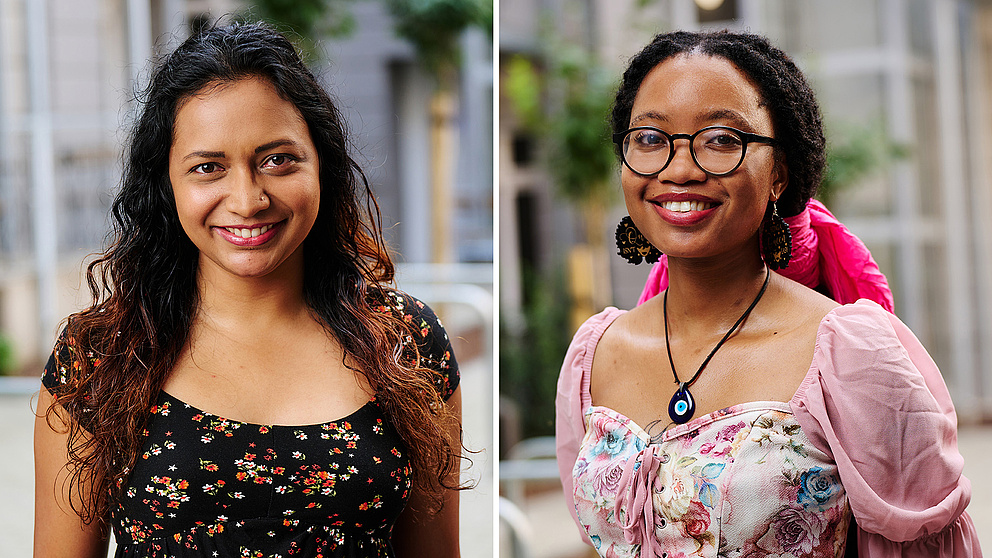
Nandini Tanya Lallmon: A Tomb Raider Approach to Decolonisation
As the co-founder of the #Reform movement, Nandini Tanya Lallmon is flipping the script on how we think about LGBTQIA+ rights. She’s digging deep into pre-colonial African and Indian cultures to show that non-binary and fluid identities aren’t new but were wiped out by colonial powers. “The colonisers didn’t just take our land,” she says. “They erased our understanding of ourselves – our identities, our gender fluidity, and our sexual diversity.” Think of her as the Lara Croft of LGBTQIA+ advocacy – except instead of ancient tombs, she’s excavating long-lost cultural wisdom.
And she’s not stopping at policy alone. Tanya’s vision for the future is holistic, aiming to integrate this reclaimed knowledge back into the everyday lives of African and Indian communities. It’s a radical act of healing, re-anchoring these societies in their original, inclusive traditions.
Tech Wakanda Forever: Tlamelo Makati’s Fight for Inclusive AI
On the other side of this powerhouse duo is Tlamelo, a tech genius who’s basically like if Shuri from Black Panther walked out of Wakanda and into the real world with the mission to decolonise the entire digital landscape. Tlamelo’s PhD work at TU Dublin focuses on AI, but not just any AI – the kind that’s inclusive, especially of people with disabilities.
“Tech isn’t neutral,” she points out. “It’s built by people, and those people often don’t look like us.” Her fight is to make sure AI and digital tools don’t continue the same exclusionary practices that colonialism did – locking certain groups out of the future. As the research lead at Anton Tech, an agritech startup in Botswana, she’s already using AI to create tech solutions that are accessible to people in remote, underserved regions.
Decolonisation Endgame: Reclaiming the Past
Both women agree that part of the challenge is to sensitise researchers and political actors in the Global North to their colonial blind spots. As Tlamelo says, “It’s not enough to study us from afar. We need to be the ones informing the research. We need to be at the table.” In a world still weighed down by colonial legacies, these young women of colour are blazing the trail forward. And frankly, the world could use a little more of their fire.
